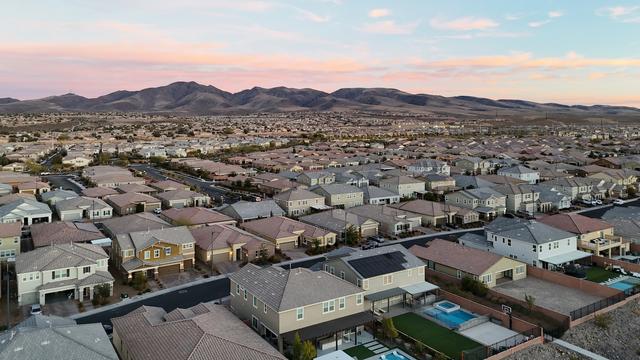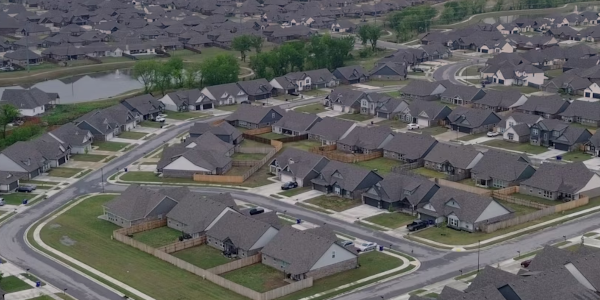To Build Houses, First Buy The Land
“I think we’ve been through a period where too many people have been given to understand that if they have a problem, it’s the government’s job to cope with it. ‘I have a problem, I’ll get a grant.’ ‘I’m homeless, the government must house me.’ They’re casting their problem on society. And, you know, there is no such thing as society. There are individual men and women, and there are families.” – Margaret Thatcher
This blog post previously appeared in Common Weal’s weekly newsletter. Sign up for the newsletter here.
If you’d like to support my work for Common Weal or support me and this blog directly, see my donate page here.
Why are houses so expensive?
There are many reasons. To take just a few, Developers only build private housing at a rate just high enough to keep prices up and subsidies flowing, certain areas are being particularly pressured by those rich enough to own multiple homes at the expense of the local community, and – as we pointed out in our book All of Our Futures – the UK’s decision to push the burden of pensions away from the state and onto individuals has created a culture of “climbing the housing ladder” with “victory” meaning extracting the wealth you’ve accumulated through ever increasing house prices so that you can pay for retirement or, increasingly, so that you can give it to a private care firm owned by a tax-dodging hedge fund. That is, if you’re allowed to buy a house at all and aren’t destined to be one of the increasing number of private renting pensioners who face destitution due to rents and the lack of means to pay for care (something we warned about in All of our Futures but only recently being picked up as a problem by places like the FT).
This isn’t a universal problem. One only needs to talk to friends and relatives in Europe or browse European real estate websites to see that (though I remember a few years ago reading a German housing economy report looking at the price bubble in Stuttgart and the conclusion was essentially ‘careful folks, or our housing sector might start looking like Britain’s’ so if not entirely a British problem, our housing sector is being used as a warning). Indeed, the Facebook algorithm, for some arcane reason, often actively feeds me the page of an estate agent in Normandy almost as a taunt (I won’t name them – it wouldn’t be fair). As I write this, today’s featured offering is a 2 bedroom semi-detached cottage plus outbuildings and two acres of land, going for – I kid you not – less than £38,000.
We’ve written extensively about how to bring down the price of building houses. Part of it means breaking the stranglehold that the mass developers have over our economy and realising that we don’t actually need their model of building as cheaply, quickly and as crap as they can get away with to extract maximum profit and then walking away from the inevitable problems they leave behind. We’ve already won part of that campaign in winning the Scottish Government’s support of increasing building standards to the highest possible energy efficient ratings (though inevitably the Scottish Government hasn’t quite tightened the nut on the legislation and the mass developers are lobbying hard to water things down to the point of uselessness so if you’d like to support our campaign to push back, please donate!)
But bringing standards up will increase, rather than decrease prices, won’t it?
Not so and not just because the developers pass the costs of their crap homes onto you in the form of repair bills and fuel poverty. The rough rule-of-thumb is that passive housing costs about 10-15% more up front than a conventional crap house but even that rule is being challenged by some of our friends in the sector who have shown that they can build at that standard at about the same as the conventional volume developer boxes. Add in the point made in our paper Good Houses for All that Councils can borrow money at cheaper rates than the private sector and we could have a system of building houses for social rent that out-compete the private sector on both price and quality, forcing that sector up their standards and control their prices.
There’s something else that could be done too. You see, the very sharp-eyed might notice an assumption that we (deliberately) made in Good Houses for All. We assumed that both the Council and the private sector could purchase land at the same price…but there’s a trick here too.
The price of land in Scotland has been speculated up beyond the reach of most just as house prices have but there’s still a massive price disparity around what a particular piece of land is actually worth at market rates. According to our land tax paper, an acre of the most prime agricultural land in Scotland might be worth something tile £10,000 per acre while a plot of less fertile grazing land might be something like £1,500 an acre and the price could be even less for brownfield sites. But as soon as there’s planning permission to build a house on that land (or several houses as we cram ever smaller boxes together) then that price can easily see a zero added to it. Developers know this. Landowners know it too. So land that “might” gain planning permission can also see a price hike too or the landowner might apply for outline planning permission and get it approved before putting their plot on the market so as to maximise value.
But Councils can play a different game here. Not only are they the ones who control the planning, they have at their disposal the power to buy land at “existing use value”. This means that even if there already is planning permission in place, as far as the Council is concerned, the land is still just a £500/acre plot of vacant brownfield because that’s what it’s currently being used for. Further, the Council has the power of Compulsory Purchase Order, which means they can force the sale of land if it would be in the public interest to do so. We recently had a supporter contact us to ask if those two powers can be combined and in combination with their own questions as of their Council have found that, yes, building social houses is an acceptable answer to the public interest test for CPO and yes this CPO can be enacted at “existing use value” without breaching human rights. The human right to own property explicitly allows for CPO so long as the property owner is fairly compensated.
But here is the rub of that test. Until now, the Scottish Government has tended to assume that “fair compensation” means “full market value”. This has needlessly acted against the ability of Local Authorities to purchase land for housing while providing, in effect, a massive hidden public subsidy to landowners where land is purchased. We are aware that the Government’s housing department will be publishing guidance later this year to try to redress this but the Government could, at the stroke of the Housing Minister’s pen, make this guidance clear and explicit right now and state that Local Authorities can and should use their CPO powers to access land, can and should use their powers of borrowing to build social housing and should use the rents from those houses to support public services after the loans are paid off. Do this right and Councils could end the housing crisis by forcing developers to build better quality, cheaper homes (especially in the private rented sector) to compete with social housing (rather than social housing being the housing of last resort that Thatcher turned it into) and we could even break up the deadlock on land in areas like rural Scotland and the islands or start regenerating brownfield urban areas back into communities without gentrifying residents out of them. As Robin said in his article last week, the private developers won’t build ourselves out of a housing crisis that they profit from maintaining. Something else needs to happen.
Once again, none of this involves legal barriers or even problems with powers of devolution. The choice to stuff the boots of landowners with public money while we get priced out of houses that we can’t afford to stay warm in anyway is entirely a Government choice and one that could be turned around in a day. Any day. How about today?
#Housing #LandReform #politics #Scotland






